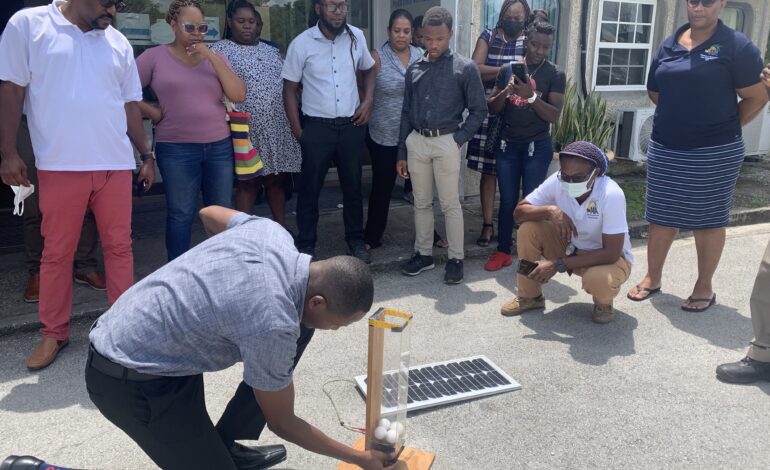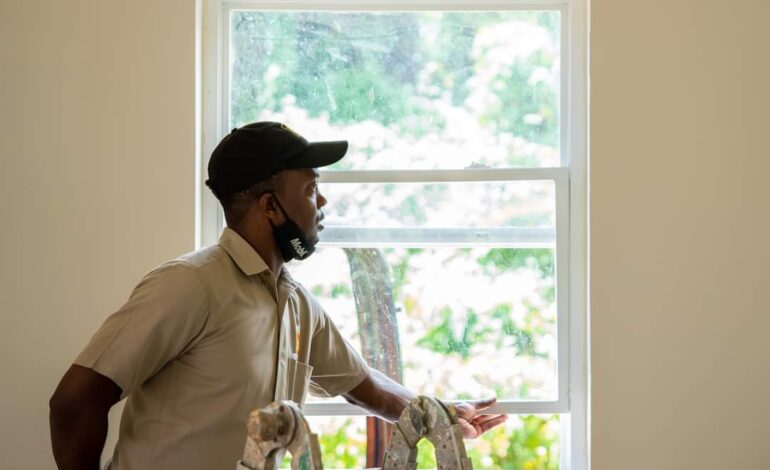
Mexico-FAO-CARICOM Resilient Caribbean Initiative builds capacity of Barbadian farmers to utilise renewable energy technologies in agricultural production
The use of renewable energy technology in agricultural production will become more accessible to farmers thanks to the Food and Agriculture Organization of the United Nations (FAO), the Government of Mexico and the Government of Barbados.
As part of the ‘Addressing the Water-Energy Nexus in Agriculture’ sub-project of the Mexico-CARICOM-FAO Initiative “Cooperation for Climate Change Adaptation and Resilience in the Caribbean” or Resilient Caribbean Initiative in short, 24 participants made up of farmers and Ministry personnel received training on the use of solar energy for farming practices.
Taking place at the Ministry of Agriculture and Food and Nutritional Security in Graeme Hall, Christ Church, on 30 September, the training was designed to build the capacity of participants to use and maintain a solar-powered water pumping system that will be provided to selected farmers under the project. Participants were introduced to the key components of the system, as well as their safe handling, operation and maintenance. The training included interaction with solar photovoltaic modules and a practical demonstration that allowed trainees to gain practical knowledge of how solar technology can be operated for crop irrigation.
Workshop Facilitator, Marlon Moore explained, “The participants benefited from an introduction to viable renewable energy options for the Caribbean, including wind and solar energy. They were exposed to a variety of innovative applications for renewable energy in farming such as lighting and security, and using passive solar energy for curing and processing of certain crops. It also demonstrated how solar-powered irrigation systems, to be provided through the project, will operate.”
Senior Agricultural Officer in the Ministry of Agriculture, Glenn Marshall indicated this initiative was necessary to the sustainability of the agricultural sector as the Caribbean continues to grapple with the impacts of climate change and growing water scarcity, “As our climate becomes hotter and drier, the prolonged dry spells will continue to impact our agricultural sector. We are seeing the effects now, but it will get worse. We need to start the technical adjustments and build the ability of our farming community to adapt. Access to solar energy and alternative technologies that will help us through, is one way we can build resilience and ensure we know where the water for agriculture will come from. This project is important to meeting these goals.”
As the effects of climate change intensify, sea levels are likely to rise, decreasing freshwater quality and increasing the frequency and severity of droughts. This, coupled with inefficiencies in the use of water, particularly affects agricultural production, which is in strong competition with other sectors for water resources. The Resilient Caribbean Initiative funded by the Mexican Agency for International Development Cooperation (AMEXCID) and implemented by FAO supports Caribbean Small Island Developing States (SIDS) using an integrated Water-Energy-Food nexus approach in Barbados, Antigua and Barbuda, Jamaica and Saint Kitts and Nevis. It promotes technological innovations, such as solar-powered (micro) irrigation systems to improve water efficiency and management (e.g. hydroponics and rainwater harvesting), and access to clean and renewable energy (solar and wind), to increase agricultural productivity and efficiency in water use.
Participants, such as Fruit Tree Farmer, Alpha Scott, is happy to able to receive such support through the project, sharing “This workshop was useful in introducing me to the ways solar energy can be used in my line of work. I now have a better understanding of how I can move forward on a bigger scale using solar energy to boost my business. The knowledge and equipment will go a long way in helping me achieve this.”






